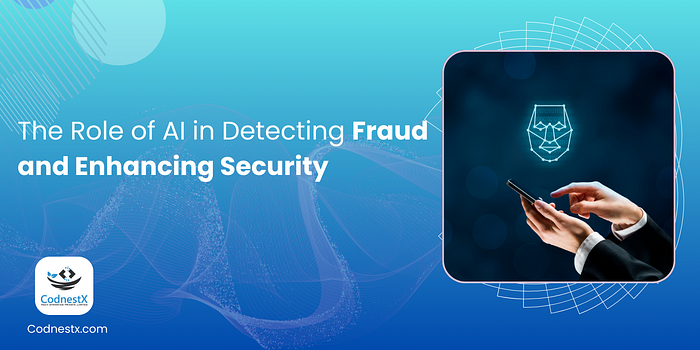
Fraud and security breaches are evolving threats in today’s digital landscape
Why AI Is a Game-Changer in Fraud Detection
AI is not just a buzzword — it’s a transformative tool. Its ability to process massive amounts of data quickly and accurately makes it a critical weapon against fraud. AI systems don’t tire or make subjective decisions, giving them an edge over traditional methods.
Types of Fraud AI Can Detect
AI is versatile and can tackle a range of fraudulent activities, including:
- Financial Fraud: Unauthorized transactions and money laundering.
- Identity Theft: Detecting fake profiles or misuse of credentials.
- Cybersecurity Breaches: Identifying phishing attempts and malware.
Machine Learning for Fraud Detection

Machine learning (ML), a subset of AI, identifies patterns and anomalies that often go unnoticed by humans. It uses historical data to predict fraudulent behavior, ensuring faster and more accurate detection.
Behavioral Analysis Using AI
Ever noticed your bank flagging a transaction because it seemed unusual? That’s AI at work! By analyzing user behavior — like login patterns and spending habits — AI can identify suspicious activities in real time.
AI-Powered Transaction Monitoring
Banks and financial institutions are leveraging AI to monitor transactions 24/7. These systems flag anomalies instantly, reducing the time it takes to respond to potential threats.
Enhancing Security with AI

Fraud detection isn’t the only area where AI shines. It’s also a game-changer in bolstering security systems. From predictive threat analysis to advanced biometrics, AI is reshaping how we think about safety.
AI in Biometric Security
Biometric authentication — like fingerprint scanning and facial recognition — has become more secure and accurate thanks to AI. It reduces the chances of forgery while providing a seamless user experience.
Natural Language Processing for Threat Analysis
AI-powered natural language processing (NLP) scans communication channels, like emails and messages, for red flags. This helps businesses detect phishing attempts and fraudulent communications before damage occurs.
AI for Risk Scoring

Risk scoring is another area where AI excels. It evaluates the likelihood of fraud based on historical data, transaction patterns, and user behavior. This helps businesses make informed decisions.
Cybersecurity with AI
AI strengthens cybersecurity by detecting and neutralizing threats like:
- Phishing: Spotting malicious links and fake websites.
- Malware: Identifying and blocking harmful software.
- Ransomware: Preventing attacks by recognizing suspicious file activity.
Challenges in Using AI for Fraud Detection
While AI is powerful, it’s not without challenges:
- Data Privacy: Using sensitive data for training AI models raises concerns.
- False Positives: AI systems sometimes flag legitimate activities as fraud.
- Implementation Costs: Building and maintaining AI systems can be expensive.
Future of AI in Fraud Detection

The future of AI in fraud detection looks promising. Emerging trends include:
- AI-Powered Blockchain: Enhancing transparency and traceability.
- Quantum AI: Offering unprecedented speed and accuracy.
- Autonomous Systems: AI systems that adapt and learn without human intervention.
Case Studies of AI in Action
1. PayPal: Uses AI to analyze millions of transactions daily, drastically reducing fraud rates.
2. JP Morgan Chase: Employs AI to detect and prevent financial crimes, saving billions annually.
3. Government Agencies: Utilize AI for border security and fraud prevention in public welfare systems.
Conclusion
AI has become indispensable in the fight against fraud and for enhancing security. Its ability to learn, adapt, and process data in real time makes it a cornerstone of modern defenses. As technology continues to evolve, so will the ways we use AI to protect ourselves.
Connect with us for all your IT development needs! Let’s discuss how we can bring your ideas to life — sales@codnestx.com
#FraudDetection #Cybersecurity #ArtificialIntelligence #AIinSecurity #CodnestX
FAQs
1. Can AI completely eliminate fraud?
AI significantly reduces fraud but cannot eliminate it entirely. Human oversight and complementary technologies are still essential.
2. How does AI differ from traditional fraud detection methods?
AI is faster, more accurate, and can analyze large datasets, unlike traditional rule-based systems that rely on static thresholds.
3. Is AI affordable for small businesses?
Yes, many AI solutions are scalable, making them accessible to businesses of all sizes.
4. How does AI handle data privacy?
AI systems must comply with data protection regulations like GDPR to ensure privacy and security.
5. What industries benefit the most from AI in fraud detection?
Finance, e-commerce, healthcare, and government sectors see the most significant impact.